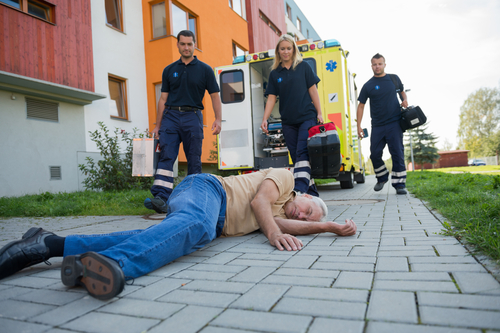According to the Centers for Disease Control and Prevention (CDC), about one in four adults aged 65 and older falls each year in the United States. Additionally, falls are the leading cause of fatal and non-fatal injuries among older adults, with over 36 million falls reported each year, resulting in about 32,000 deaths. Therefore, it is understandable that elderly people fear falling, as it can have a significant impact on their quality of life and even result in mortality.
Falls in seniors can be caused by a variety of factors, including:
- Muscle weakness: As we age, we lose muscle mass and strength, which can affect balance and stability.
- Vision problems: Age-related vision changes can affect depth perception and balance.
- Medications: Some medications can cause dizziness, drowsiness, or balance issues.
- Chronic health conditions: Chronic health conditions, such as arthritis or Parkinson's disease, can affect balance and mobility.
- Environmental hazards: Hazards such as uneven flooring, poor lighting, or clutter can increase the risk of falls.
To prevent falls in the elderly, it's important to take the following steps:
- Exercise regularly: Regular exercise can help improve balance, strength, and flexibility.
- Check medications: Seniors should review their medications with their healthcare provider to ensure they are not taking anything that could cause dizziness or balance issues.
- Improve home safety: Make sure the home is free from hazards, such as loose rugs, poor lighting, and clutter.
- Regular eye exams: Seniors should have regular eye exams to ensure their vision is up-to-date and any vision problems are detected early.
- Wear appropriate footwear: Shoes with good support and non-slip soles can help prevent falls.
What to do if a loved one has a fall?
If a senior experiences a fall, it's important to seek medical attention right away, even if there are no obvious injuries. The healthcare provider can evaluate the senior for any injuries, such as fractures or head injuries, and provide appropriate treatment. In these cases, having an emergency response system in the home can prevent a senior from laying on the floor for extended period of time.
To keep the body strong and prevent falls, seniors should engage in regular exercise that includes both aerobic activity and strength training. They should also maintain a healthy diet that includes adequate protein and other essential nutrients.

